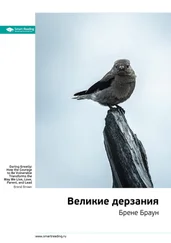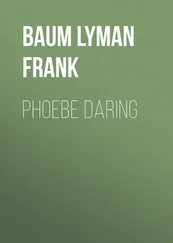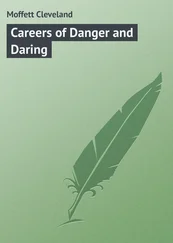As it turns out, I was wrong about hope and right about scrappy and Plan B. According to Snyder, who dedicated his career to studying this topic, hope isn’t an emotion; it’s a way of thinking or a cognitive process. Emotions play a supporting role, but hope is really a thought process made up of what Snyder calls a trilogy of goals, pathways, and agency. In very simple terms, hope happens when:
We have the ability to set realistic goals (I know where I want to go).
We are able to figure out how to achieve those goals, including the ability to stay flexible and develop alternative routes (I know how to get there, I’m persistent, and I can tolerate disappointment and try again).
We believe in ourselves (I can do this!).
So, hope is a combination of setting goals, having the tenacity and perseverance to pursue them, and believing in our own abilities. Hope is Plan B.
And, here’s the part that inspired me to deal with my own vulnerability so I could step back and let my children learn how to figure some things out on their own: Hope is learned! According to Snyder, children most often learn hope from their parents. To learn hopefulness, children need relationships that are characterized by boundaries, consistency, and support. Children with high levels of hopefulness have experience with adversity. They’ve been given the opportunity to struggle and in doing that they learn how to believe in themselves.
Raising children who are hopeful and who have the courage to be vulnerable means stepping back and letting them experience disappointment, deal with conflict, learn how to assert themselves, and have the opportunity to fail. If we’re always following our children into the arena, hushing the critics, and assuring their victory, they’ll never learn that they have the ability to dare greatly on their own.
One of my best lessons on this comes from an experience that I had with Ellen. It began when I was still ten cars away from her in the swim team pickup line. It was getting dark, so I could only make out her silhouette, but that was enough: I could tell something was wrong by the way she was standing. She flung herself into the front seat, and before I could ask her about practice, she was in tears.
“What happened? What’s wrong? Are you okay?”
She stared out the window, drew a deep breath as she wiped her tears on the sleeve of her hoodie, and said, “I have to swim the 100 breaststroke at the meet on Saturday.”
I knew this was a really bad thing in her world, so I tried not to seem relieved—which I was because, in a crazy-but-normal-for-me fashion, I was already thinking something really horrible had happened.
“You don’t understand. I can’t swim breaststroke. I’m terrible. You don’t get it. I begged him not to put me in that event.”
I was getting ready to respond with something empathetic and encouraging as I pulled into the driveway, but just then she looked me right in the eyes, put her hand on top of my hand, and said, “Please, Mom. Please help me. I’m still going to be swimming when the other girls are getting out of the pool and the next heat is getting on the blocks. I’m really that slow.”
I couldn’t swallow. I couldn’t think clearly. All of a sudden, I’m ten years old and I’m on the blocks getting ready to swim for the Memorial Northwest Marlins. My dad is the starter, and he’s giving me the win-or-die look. I’m in the lane closest to the wall—the slow lane. It’s going to be a disaster. Moments earlier, as I was sitting on the ready bench contemplating making a run for my banana-seat bike leaning against the fence by the diving boards, I overheard the coach say, “Let’s just swim her up an age group. I’m not sure she can finish the race, but it will be interesting.”
“Mom? Mom?? Mom!!! Are you listening to me? Will you help me? Will you talk to the coach and see if he’ll put me in another race?”
The vulnerability felt unbearable and I wanted to scream, “Yes! You don’t have to swim any event that you don’t want to swim. EVER!” But I didn’t. Calm was one of my new Wholehearted practices, so I took a deep breath, counted to five, and said, “Let me talk to your dad.”
After the kids went to bed, Steve and I spent an hour debating the issue and finally agreed that she would have to take it up with her coach. If he wanted her to swim that race, she needed to swim it. As right as the decision felt, I hated every minute of it, and I tried everything from picking a fight with Steve to blaming the coach to venting my fear and discharging the vulnerability.
Ellen was upset when we told her this, and even more upset when she came home from practice and told us that her coach thought it was important for her to get an official time for the event. She folded her arms on the table, put her head down, and cried. At one point she lifted up her head and said, “I could just scratch the event. A lot of people miss their heats.” A part of me thought, Perfect! But then she said, “I won’t win. I’m not even good enough to get second or third place. Everyone is going to be watching.”
This was the opportunity to move the levers—to redefine what’s important to her. To make our family culture more influential than the swim meet, her friends, and the ultracompetitive sports culture that is rampant in our community. I looked at her and said, “You can scratch that event. I’d probably consider that option too. But what if your goal for that race isn’t to win or even to get out of the water at the same time as the other girls? What if your goal is to show up and get wet?”
She looked at me as if I was crazy. “Just show up and get in the water?”
I explained that I had spent many years never trying anything that I wasn’t already good at doing, and how those choices almost made me forget what it feels like to be brave. I said, “Sometimes the bravest and most important thing you can do is just show up.”
Steve and I made sure that we weren’t with her when her heat was called. When it was time for the girls to get on the blocks, I wasn’t sure if she’d be there, but she was. We stood at the end of her lane and held our breath. She looked right at us, nodded her head, and snapped her goggles into place.
She was the last one out of the pool. The other swimmers had already left the deck, and there were girls standing on the blocks ready for the next heat. Steve and I screamed and cheered the entire time. When she got out of the pool, she walked over to her coach, who gave her a hug, then showed her something about her kick. When she finally made her way to us, she was smiling and a little tearful. She looked at her dad and me and said, “That was pretty bad, but I did it. I showed up and I got wet. I was brave.”
I wrote the following parenting manifesto because I need it. Steve and I need it. Putting down the measuring stick in a culture that uses acquisitions and accomplishments to assess worth is not easy. I use the manifesto as a touchstone, a prayer, and a meditation when I’m wrestling with vulnerability or when I’ve got that “never enough” fear. It reminds me of the finding that changed and probably saved my life: Who we are and how we engage with the world are much stronger predictors of how our children will do than what we know about parenting.
The Wholehearted Parenting Manifesto
Above all else, I want you to know that you are loved and lovable.
You will learn this from my words and actions—the lessons on love are in how I treat you and how I treat myself.
I want you to engage with the world from a place of worthiness.
You will learn that you are worthy of love, belonging, and joy every time you see me practice self-compassion and embrace my own imperfections.
Читать дальше
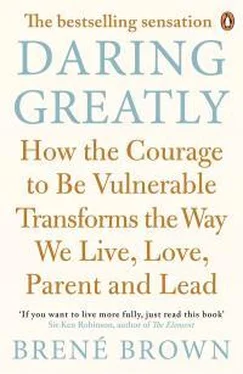




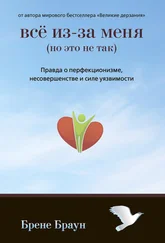
![Брене Браун - Вопреки. Как оставаться собой, когда всё против тебя [litres]](/books/436389/brene-braun-vopreki-kak-ostavatsya-soboj-kogda-v-thumb.webp)
